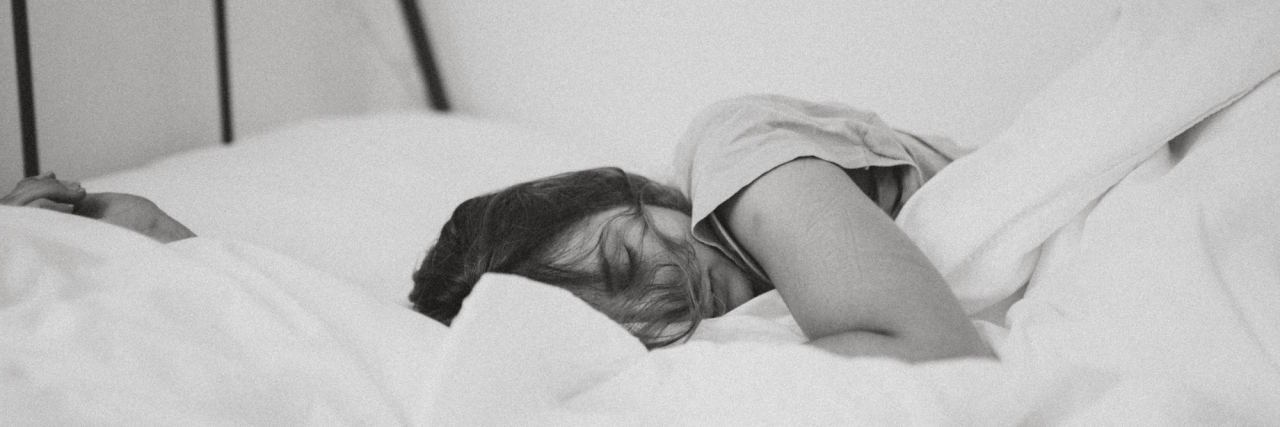When Bipolar Disorder Makes You Repulsed by Sex — Not Hypersexual
Sex is a tricky topic. It is seen as some sort of taboo, despite the fact that most humans (and animals!) do it regularly. When talking about sex with my friends, I can sometimes see their cheeks go red, the embarrassment of having to talk about that sinking in. I grew up in a household where talking about sex was not taboo. My parents have always been open with me, giving me the sex talk at an early age and allowing me to ask questions if I had any. My mom even came with me when I wanted to be put on birth control at age 19 after I told her I was ready to have sex with my then-boyfriend.
• What is Bipolar disorder?
When it comes to bipolar disorder, something I have been struggling with for half of my life, the narrative seems to be that we are all hypersexual beings. We thrive off of and crave sex during our manic phases. I have even fallen into this when experiencing mania — it’s frankly impossible to avoid, in my experience. However, we are seen as nyphomaniacs, often generalized as being cheaters. Take a look on Google and all you’ll see is articles about how obsessed with sex people with bipolar disorder are, and how it often leads to infidelity. The accuracy of such claims is suspicious at best and also dangerous in how they depict people with bipolar disorder.
But bipolar disorder is not just characterized by a heightened sex drive. It also appears as sex repulsion, and the repulsion is strong. The studies conducted by mental health professionals seems to focus solely on major depression and its impact on the libido, but little is ever said about the bipolar person with sexual repulsion. People seem to forget that people with bipolar also become depressed, just as easily as becoming manic.
I go through phases, just like every other bipolar person. One minute I am elated, or full of energy I never even knew existed inside of me (I deal with chronic pain, as well, so any bit of energy I have is a blessing); the next, despondent and unable to think about anything except suicide. When it comes to sex, while manic I am insatiable. I seek out attention wherever I can find it because I feel odd about myself. I crave the attention, lust and feeling of closeness with someone.
The repulsion, however, can be just as difficult to deal with as the hypersexuality. It is not just the frustration that comes with the inability to reach orgasm. For me, sex repulsion comes with a hatred for myself. I feel absolutely repulsed by myself at all times, and it feels as though I want to throw up. The thought of someone touching me makes me want to recoil in disgust — not because of anything my partner has done, but because my brain has decided that sex is the most grotesque act imaginable in that moment. I am unworthy and “unclean.”
And it can be quite confusing to explain to your partners exactly what is wrong, and why they are unable to fix it. When I am in a depressive episode and a man I am dating asks me if I want to spend time, I feel uncomfortable because I know sex is to be expected at some point. So I avoid, and I make excuses as to why I can’t spend time with them, and I wait for my depressive phase to be over with, which, like the depressive phase I am in now, could last months. Being honest and open about your sex repulsion is the most positive way to go about interacting with your partner, but it can also very difficult. How do you even begin to explain to someone that doesn’t experience sex repulsion that you are feeling it very strongly? How do you explain the fact that you do not want to be touched or even looked at in a sexual way?
There is nothing shameful about feeling repulsion towards sex, just like there is nothing shameful about feeling hypersexual. If you are experiencing sex repulsion, there is nothing wrong with you, and you are not disgusting or any of the other things you may be feeling. Bipolar manifests in many different ways, and our disorder is nothing to feel disgust over. All we can hope for is that our symptoms do not take over our whole lives.
Unsplash photo via Kinga Cichewicz

